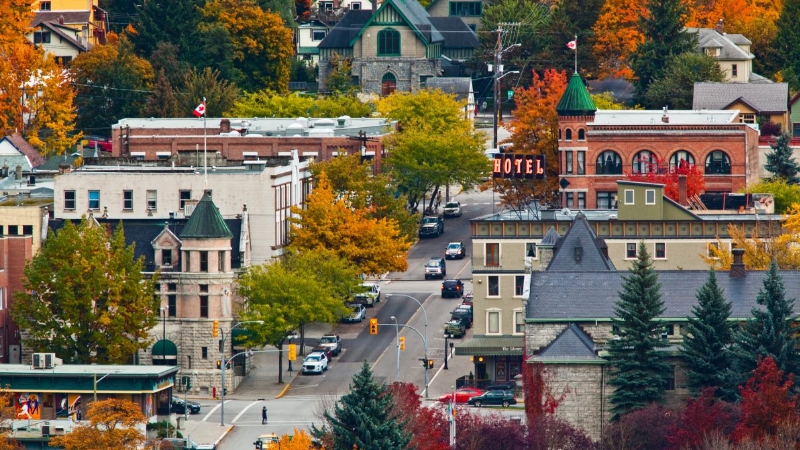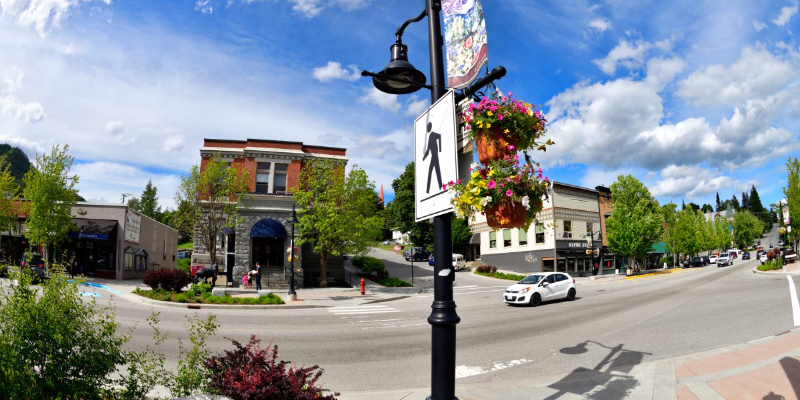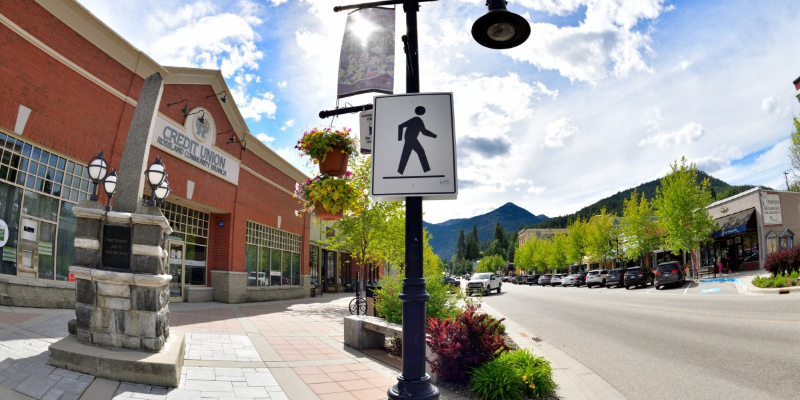Who we are
Nelson & District Credit Union is a proud supporter of our local communities, striving to “keep interest local”.

Nelson & District Credit Union is a proud supporter of our local communities, striving to “keep interest local”.
On the day BC’s first credit union opened its doors history was in the making. Running a financial institution on the principles of democracy may not seem like a radical idea today, but in the first half of the 20th century, when profit-motivated banks made it difficult for the average citizen to borrow or invest, it was revolutionary.
Ever since, credit unions like NDCU have helped shape the economic and social quality of life in BC. As our history shows, the balance of service excellence, sound financial practices and a commitment to community has attracted more and more British Columbians over the decades.
The financial service provider of choice in our communities.
The post-war economy was stable and consumer goods were filling the shelves. A new fleet of buses had just replaced the clanging streetcars in Nelson’s downtown. Meanwhile, a hot, new idea in co-operative banking was emerging —credit unions.
On November 14, 1950, 10 local residents signed an application to incorporate the Nelson Savings Credit Union with November 16, 1950, as the official incorporation date.
The Credit Union’s “office” was a metal cash box stored in a charter member’s kitchen on Silica Street. Later, the box was moved to the Tot ’n’ Teen Shop on Ward Street, where one of the store’s employees, Shizuye Tagami, tended the Credit Union files in her spare time. Annual general meetings became social events, and the “family” atmosphere extended to the Credit Committee, which approved all loans and usually knew each applicant and his or her financial situation.
The swinging 60s were a time of tumultuous social change. On the home front, Notre Dame University College and Selkirk College welcomed their first students. The Nelson Savings Credit Union surpassed $1 million in assets.
They provided members with the latest in banking services, as well as incorporating smaller local credit unions, such as the Nelson Railway Employees Credit Union and the Provincial Government Employees Credit Union.
The year 1965 was a banner year, with a new name and a move from 659 Baker Street to 507 Vernon Street. The average mortgage loan in 1969 was $4,370.
A decade of growth and change. Locally, the David Thompson University Centre, the Norman Stibbs Airport and the Whitewater Ski Resort opened their doors, and construction began on the Chahko Mika Mall.
During this decade, the Credit Union saw its assets surpass $10 million, and it moved operations into larger premises next door, which is our current location at 501 Vernon Street. Computer technology was beginning to transform banking services, and the 1977 annual report was enthusiastic about the planned conversion to an online data-processing system.
By 1979, the economic outlook was darkening. “Stagflation” was the term coined for the combination of rising inflation (up to 13.3 per cent in 1979) and unemployment. With interest rates at an all-time high, the Credit Union had to call in mortgages.
Hit by the worst recession since the Great Depression, NDCU management reported “economic conditions unlike anything ever experienced by the Credit Union movement in North America.”
Locally, David Thompson University Centre was shut down, along with Kootenay Forest Product’s plywood plant and Westar Timber’s Nelson sawmill. The board of directors found itself reacting almost weekly to fluctuating interest rates, which hit an unprecedented 22.75 per cent in mid-August 1981.
Despite the gloom, the Credit Union continued to improve its deposit base. Through amalgamation with Riondel & District Credit Union, which had been operating since 1954, it gained a new branch with 570 members and $1.85 million in assets.
By 1986, economic conditions had taken a turn for the better, and by the end of the decade, earnings were soaring. Hollywood came to town in 1987 to film Roxanne and Nelson’s first ATM was located outside the Overwaitea grocery store.
As countries panic, most internationally exposed financial institutions follow. The economic downturn continues to linger and credit unions continue to thrive due to their community-centric economic focus that keeps them protected from global market impacts.
Enriching lives locally has been, and will be, the focus for NDCU for years to come.
Technology is always a focus, as NDCU successfully completes two SWITCH banking-system conversions; rolls out chip and flash-enabled debit cards and launches a new website and mobile apps for its members. Staff celebrate these accomplishments, while the community benefits from the Credit Union’s solid growth. The NDCU Community Investment Program has disbursed close to $3.5 million back to the communities it serves.
Nelson celebrated its centennial, broke ground on the Waterfront Pathway and debated on the new Prestige Lakeside Hotel. NDCU began the decade with over $30 million in assets and saw that triple.
It opened its new East Shore branch building, purchased Allard Insurance Agencies Limited and T.A. Lymbery Insurance Services, and in 1999 it merged with the Rossland Credit Union, a 58-year-old institution with 3,500 members and $26 million in assets.
At the decade’s end, the credit union was busy modifying its computer systems to be “Y2K ready.”
Shortly after the kick-off of a new decade, the world was turned upside down with the pandemic. No planning could have prepared our communities and Credit Union for the impacts felt locally and across the world.
The Credit union pivoted quickly to ensure the health and safety of our members, employees and communities as the utmost priority. NDCU was innovative in rapidly developing remote strategies to assist members without a need to visit their community branch.
By quickly responding to the economic needs in our communities, NDCU rolled out payment deferrals and federal loan programs for impacted members.
Our efforts have been recognized as the Credit Union has seen unprecedented growth in young members and profitability.
By November 2025 your credit union will be celebrating its 75th anniversary. Caring for community has contributed to living our vision of being the financial services provider of choice in our communities by enriching lives locally.
The decade that began with 9/11 ended with a global financial meltdown. Thanks to its community-centric approach, NDCU was buffered from the broader economic slump.
It also weathered internal challenges, in particular, a first-ever strike by its unionized employees. The Credit Union’s new youth services won national innovation awards (go zippitydodog!).
Through its Community Investment Program, the Credit Union gave back to its member communities – its financial support to local projects topping the $2 million mark. This included a donation of 4.5 acres of land to the East Shore community park, $200,000 to support the Community First Health Co-op’s Wellness Centre, and $50,000 to Rossland’s Golden Bear Day Care, to name a few.

Nelson & District Credit Union is governed by a nine-person Board of Directors that represents all our members. They play a pivotal role in how we operate.

As a community impact champion, we’re proud of our involvement and achievement in a variety of successful programs and initiatives that enhance the experiences of our members and communities.

Our credit union follows a number of rules around membership, management and more to ensure you receive the best possible service from us.